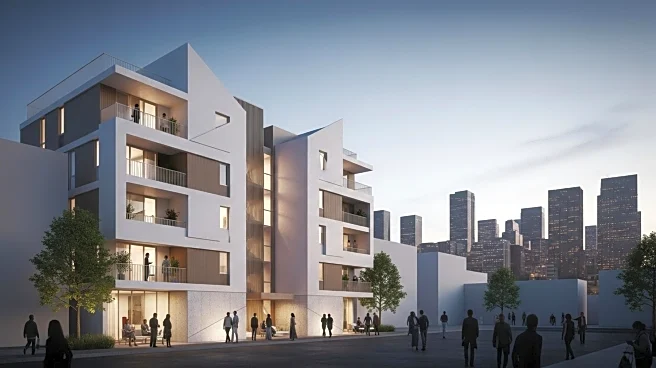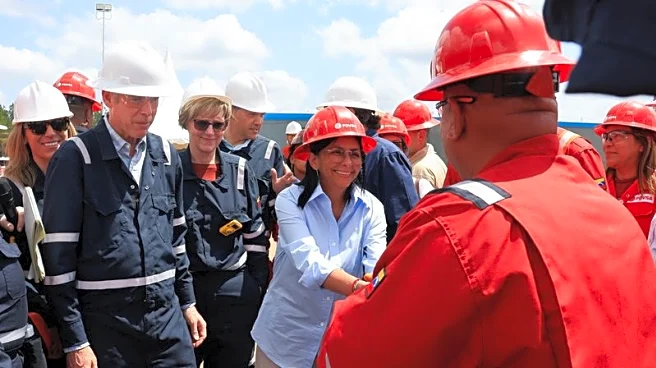What's Happening?
Mesa has been identified as the third most affordable city in the metro Phoenix area for renters, with a typical rent of $1,250 for a one-bedroom apartment. This ranking comes as the city experiences a surge in new apartment complexes opening to accommodate the increasing demand driven by major employers in the region. The affordability of Mesa is part of a broader trend in the area, where cities like Glendale and Phoenix also offer competitive rental prices. Glendale, for instance, is the most affordable, with a median one-bedroom rent of $1,050, and has seen a significant drop in average rent over the past year. The influx of new housing developments is attributed to the growth in the West Valley, spurred by large employers such as Taiwan Semiconductor Manufacturing Co.
Why It's Important?
The affordability of rent in Mesa and other cities in the metro Phoenix area is crucial for attracting and retaining residents, particularly as the region continues to grow economically. The presence of major employers is driving demand for housing, and the availability of affordable rental options can support workforce stability and economic development. This trend may benefit local businesses and industries by ensuring a steady supply of workers who can afford to live nearby. Additionally, the development of new apartment complexes can stimulate the local economy through construction jobs and increased consumer spending in the area.
What's Next?
As more apartment complexes open in Mesa and surrounding cities, the rental market may continue to evolve, potentially leading to further adjustments in rental prices. Stakeholders, including city planners and developers, will likely monitor these changes to ensure that housing remains accessible to a diverse population. The ongoing growth driven by major employers may also prompt additional infrastructure and community development projects to support the expanding population.
Beyond the Headlines
The trend of affordable housing in the metro Phoenix area highlights broader issues related to urban development and economic inequality. As cities strive to balance growth with affordability, they may face challenges in maintaining infrastructure and services for an increasing population. The focus on affordable housing also raises questions about long-term sustainability and the environmental impact of rapid urban expansion.










